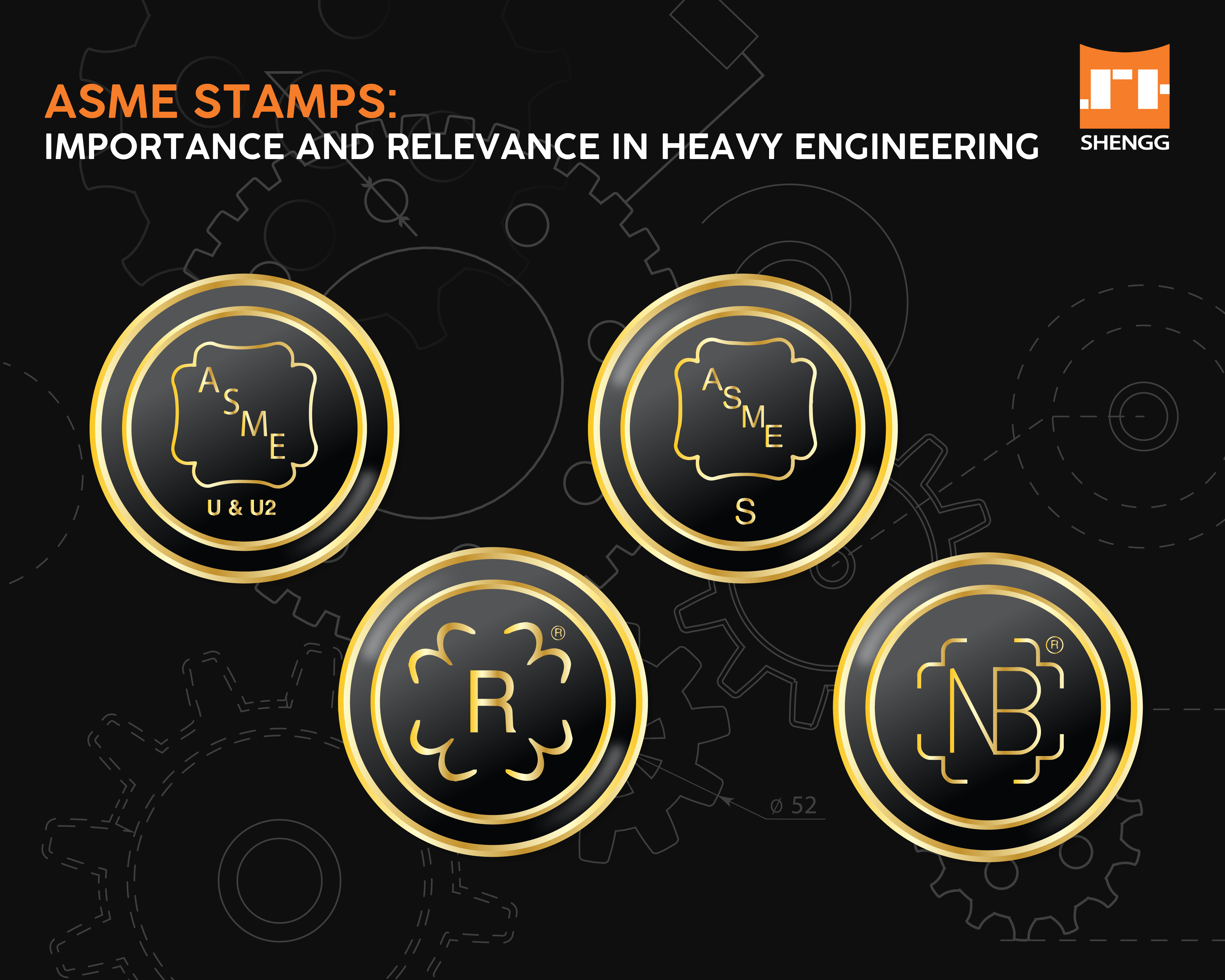ASME Stamps: Importance and Relevance in Heavy Engineering
In the world of heavy engineering, safety and quality are paramount. This is why many companies, including SHENGG, adhere to strict standards and regulations when designing and fabricating their products. One such standard is the American Society of Mechanical Engineers (ASME) Boiler and Pressure Vessel Code, which requires the use of ASME stamps on qualifying equipment.
But what are ASME stamps, and why are they important?
ASME stamps are certification marks indicating that a piece of equipment meets the rigorous safety and quality standards set forth by the ASME. These stamps are only issued to manufacturers who have demonstrated a high level of competency in the design, fabrication, and testing of equipment, and who have implemented strict quality control procedures throughout their manufacturing process.
For heavy engineering manufacturers like SHENGG, obtaining ASME stamps is crucial for several reasons. First and foremost, it demonstrates their commitment to safety and quality, providing assurance to customers that the equipment they are purchasing meets the highest standards. This not only protects the end-users of the equipment but also reduces liability risks for manufacturers.
Additionally, ASME stamps are often required by regulatory bodies and industry organisations, particularly in the oil and gas industry, where safety is of utmost importance. Without these stamps, manufacturers may be unable to sell their products to certain customers or may be subject to costly and time-consuming re-certification processes.
There are several types of ASME stamps, each indicating the specific standards to which the equipment has been designed and manufactured. The most common stamp for heavy engineering manufacturers is the “U” stamp, which indicates that a piece of equipment meets the ASME Boiler and Pressure Vessel Code’s standards for pressure vessels.
To obtain the “U” stamp, manufacturers like SHENGG must undergo a rigorous certification process, which includes an audit of their quality control systems, testing and inspection procedures, and documentation of design calculations and material certifications. This process helps ensure that the equipment being manufactured is safe, reliable, and meets the highest industry standards.
In addition to the “U” stamp, ASME offers several other stamps, including the “R” stamp for repairs and alterations, the “S” stamp for power boilers, and the “U2” stamp for Class 1 and Class 2 pressure vessels. Each stamp indicates a specific set of standards and requirements, and manufacturers must meet the appropriate criteria to obtain each stamp.
In conclusion, ASME stamps play a critical role in ensuring the safety and quality of heavy engineering equipment, and are an important factor to consider when selecting a manufacturer. Companies like SHENGG, which hold ASME stamps, demonstrate their commitment to safety and quality, and provide customers with confidence that they are purchasing equipment that meets the highest industry standards.



